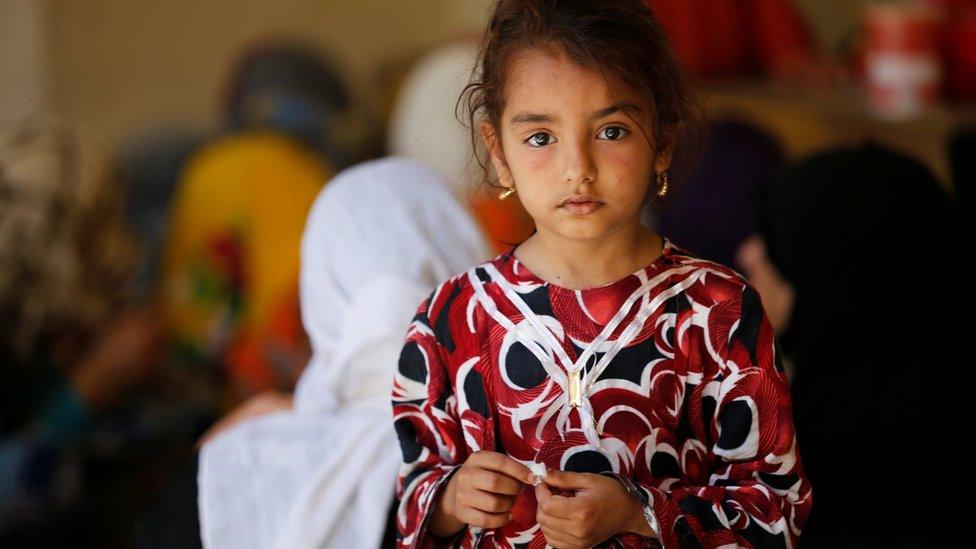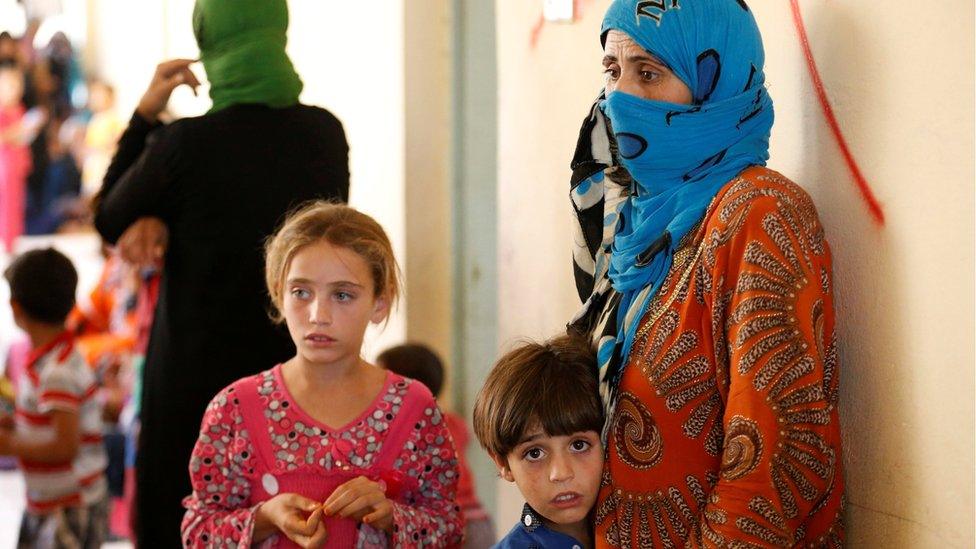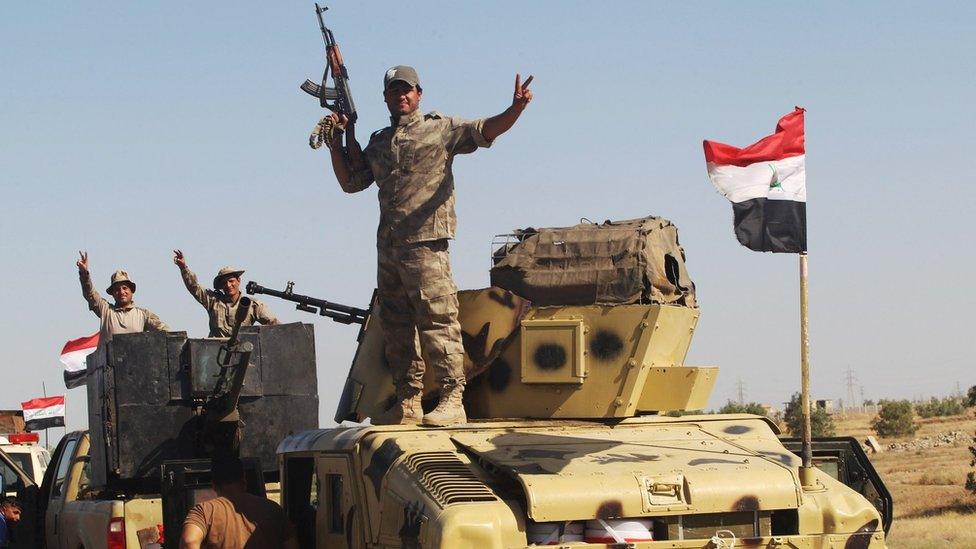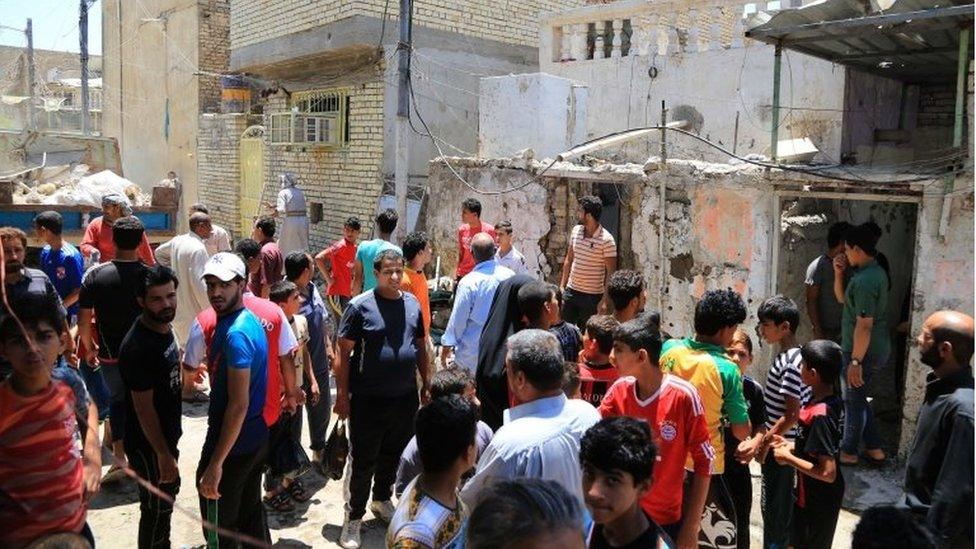Iraq troops in 'final assault' on Islamic State in Falluja
- Published
Footage shows the Iraqi army using heavy artillery on the ground, and being assisted by US jets from the air
The Iraqi army is facing fierce resistance and counter-attacks as it attempts to storm Falluja, a bastion of so-called Islamic State (IS).
Monday's offensive came a week after the army began efforts to retake the city, just 30 miles (50km) west of Baghdad and held by IS since 2014.
An estimated 50,000 civilians are trapped inside, with only a few hundred families escaping so far.
Meanwhile IS militants launched a wave of bombings in and around Baghdad.
The attacks in the Iraqi capital killed at least 21 people.
The commander of the army operation in Falluja, Lt Gen Abdul-Wahab al-Saadi, said: "The counter-terrorism troops along with other armed forces and Anbar [province] police have started pushing into the city. Violent clashes took place on the outskirts."
The Iraqi air force and international coalition jets carried out strikes in support of ground troops.
IS is thought to have about 1,200 fighters, the majority from the city itself.


This girl has fled her home due to the clashes on the outskirts of Falluja

These families have taken refuge in Garma, north of Falluja
The BBC's Jim Muir in Baghdad says government forces have taken over two townships on the southern fringes of Falluja, but on other fronts they are some way from the edge of the city itself.
The impression is that the army is trying to close a ring of steel around the city, he says.
Militia leaders taking part have said there is likely to be a pause before the assault on the city centre begins so as to allow more civilians to escape.

Iraqi forces began the effort to retake Falluja a week ago

In Baghdad's Sadr City, a bomb on a motorcycle killed three people
There is alarm over conditions faced by civilians, with reports of people starving to death and of being killed for refusing to fight for IS.
The Iraqi military has urged those remaining to either leave the city or stay indoors, though IS is preventing civilians from fleeing.
Falluja fell to IS in January 2014, a key moment in the jihadist group's rise that saw it declare a caliphate across swathes of Iraq and Syria.
Along with Mosul, it is one of two major cities held by IS in Iraq.
Meanwhile three districts of Baghdad have been targeted in attacks.
In the worst incident, a car bomb detonated at an army checkpoint in the mainly Shia area of Shaab, killing at least 11 people
Another suicide attacker, on a motorbike, targeted Sadr City, a Shia area of Baghdad, killing three people
A suicide bomber struck a market in Tarmiya, a town 50km (30 miles) north of Baghdad, killing at least seven
All three bombings have been claimed by IS in an online statement.
IS frequently targets Shia Muslims, whom the extremist Sunni militant group regards as apostates.
The attacks may also be an attempt to deflect attention from the operation in Falluja.


Falluja - key facts:
had population of more than 300,000 before it was seized by first al-Qaeda and then by IS in 2014
has always been a hotbed of Sunni defiance, becoming a symbol of resistance to US forces in violent battles in 2004
controls main highway from Baghdad to both Jordan and Syria
is known as the "city of mosques" - more than 200 mosques in city and surrounding area